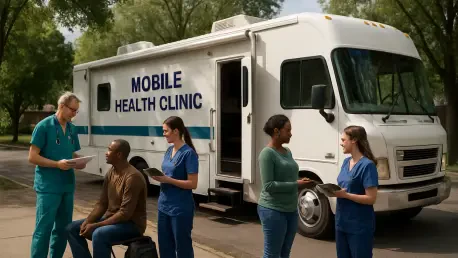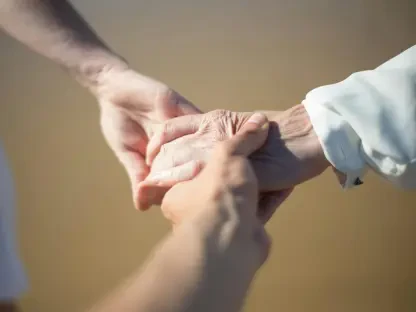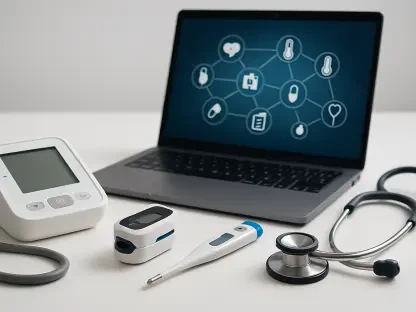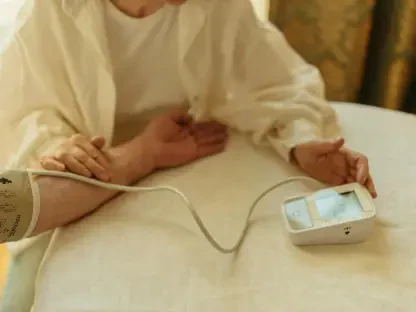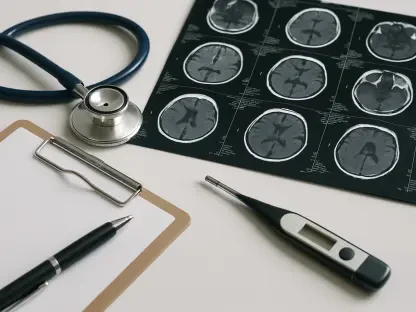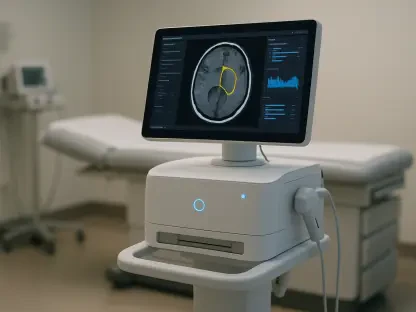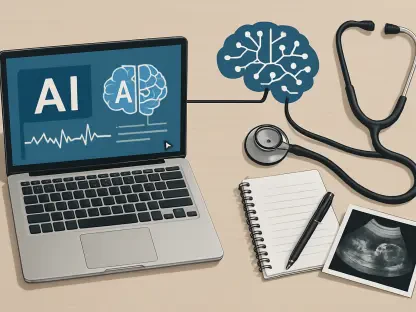In the remote and underserved regions of southern Hebron within the Occupied Palestinian Territory, countless women and girls grapple with the devastating effects of gender-based violence (GBV), compounded by geographic isolation and systemic crises. Amid a deepening humanitarian situation in the West Bank, where displacement and restricted movement hinder access to basic services, a beacon of hope has emerged through innovative initiatives. Mobile health teams and safe spaces are stepping in to provide critical support to survivors, addressing not only immediate health needs but also the emotional and social scars left by violence. These efforts are proving to be a lifeline for marginalized communities, offering a rare opportunity for healing and empowerment in an environment marked by instability and fear. This article delves into the transformative role of these mobile units, exploring how they navigate the complex challenges of rural areas to bring essential care and a sense of dignity to those who need it most.
Addressing Barriers to Care in Rural Communities
Overcoming Geographic and Economic Challenges
In the rural landscapes of southern Hebron, such as villages like Deir Al Shams, the struggle to access healthcare is a daily reality for many women and girls, particularly those who have endured gender-based violence. The vast distances to urban centers, coupled with the prohibitive costs of transportation, create insurmountable barriers for individuals like Ayat, a pregnant mother of four who cannot afford the journey for regular medical checkups. Mobile health teams, supported by organizations like UNFPA and local partners, have become a game-changer by bringing services directly to these isolated areas. These units offer a range of support, from basic medical care to counseling, ensuring that survivors do not have to risk financial ruin or physical safety to seek help. By eliminating the need for long and expensive travel, these initiatives are dismantling some of the most significant obstacles that prevent women from receiving the care they desperately need in times of crisis.
Tackling Social Stigma and Isolation
Beyond the physical barriers, social stigma surrounding gender-based violence often silences survivors in rural communities, leaving them trapped in cycles of fear and shame. Many women in southern Hebron hesitate to speak out or seek assistance due to the risk of judgment or retaliation within their tight-knit societies. Mobile safe spaces address this profound isolation by creating environments where women can share their experiences without fear. These spaces foster a sense of community, allowing individuals to connect, offer mutual support, and access psychosocial services that rebuild confidence. For instance, women have expressed immense relief at having a place to speak freely and find solace among peers who understand their struggles. This emotional sanctuary, provided by mobile teams, plays a crucial role in helping survivors reclaim their voices and begin the healing process, breaking down the walls of silence that perpetuate their suffering in remote areas.
Providing Holistic Support for Healing and Empowerment
Delivering Comprehensive Health and Legal Services
Mobile health teams in Hebron are not just about addressing immediate medical needs; they offer a holistic approach that encompasses a wide array of services tailored to the unique challenges faced by GBV survivors. In partnership with local and international entities, including funding from the Government of Canada, these teams provide reproductive health care, first aid, and case management to ensure that every aspect of a survivor’s well-being is considered. Legal aid is another critical component, empowering women with knowledge of their rights and options for seeking justice in a region where systemic barriers often limit such access. Fixed safe spaces in Hebron City and shelters in other West Bank areas like Nablus and Jenin complement these mobile units, creating a network of support that reaches even the most marginalized. This comprehensive framework ensures that survivors receive the multifaceted care necessary to navigate the aftermath of violence and rebuild their lives with dignity.
Fostering Emotional Resilience and Community Bonds
The impact of mobile safe spaces extends far beyond tangible services, as they cultivate emotional resilience and a renewed sense of belonging among women and girls in southern Hebron. In a context where nearly all women report heightened anxiety due to ongoing instability and occupation-related restrictions, these spaces serve as rare havens for emotional release and connection. Stories from individuals like Samira, who leads a local women’s protection committee, highlight how these environments allow women to laugh, cry, and support one another without shame. Awareness sessions and empowerment programs further equip survivors with tools to cope with trauma and advocate for themselves. By prioritizing mental health alongside physical care, mobile health teams address the pervasive fear and stress that dominate daily life, helping to restore a sense of normalcy and hope. This communal healing is a vital step toward long-term recovery, reinforcing the idea that no one should face such challenges alone.
Building a Sustainable Future for Vulnerable Populations
Bridging Systemic Gaps with Innovative Solutions
The introduction of mobile health teams in southern Hebron represents a critical first step in bridging systemic gaps that leave women and girls vulnerable to the devastating effects of gender-based violence. The lack of permanent infrastructure in rural areas amplifies the challenges of delivering consistent care, but these mobile units offer a flexible and innovative solution to reach those most in need. Collaborations between UNFPA, local organizations like the Palestinian Family Planning and Protection Association, and international donors underscore a shared commitment to addressing these urgent issues. However, with over 230,000 women and girls lacking adequate access to reproductive health services in the West Bank, including thousands of pregnant women, the scale of the crisis demands expanded efforts. These mobile initiatives highlight the potential for scalable models that can adapt to the region’s unique constraints, paving the way for more inclusive and accessible support systems.
Reflecting on Past Impact and Future Needs
Looking back, the deployment of mobile safe spaces in southern Hebron marked a turning point for countless GBV survivors who had long been cut off from essential care due to isolation and hardship. These initiatives provided not just medical and legal assistance, but also a profound sense of recognition and community that empowered women to reclaim their agency. The stories of resilience from individuals who found solace in these spaces underscore the transformative power of targeted humanitarian aid. Moving forward, sustained investment and innovation must remain a priority to ensure that temporary solutions evolve into long-term frameworks. Expanding the reach of mobile health teams, integrating more permanent facilities, and enhancing training for local providers could further strengthen this vital lifeline. As the region continues to navigate complex challenges, the lessons learned from these efforts offer a blueprint for building a future where every woman and girl has access to safety, healing, and hope.
